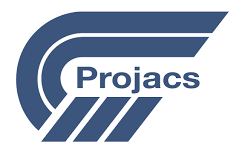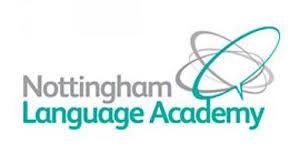
Corporate Governance and Reporting Excellence
Course ID: 2507070101094EGI
Course Dates : 07/07/25 Course Duration : 5 Studying Day/s Course Location: London, UK
Language: Bilingual
Course Category: Professional and CPD Training Programs
Course Subcategories: Operations and Process Excellence
Course Certified By: * Projacs Academy
* Professional Training and CPD Programs
Certification Will Be Issued From :
KSA
Course Fees: £4,838.34
Vat Not Included in the price. VAT may vary depending on the country where the course or workshop is held.
Click to Pay
Date has passed please contact us Sales@e-s-hub.com
Course Information
Introduction
Corporate governance serves as the backbone of sustainable business success, fostering accountability, transparency, and ethical decision-making within organizations. The quality of governance structures directly impacts investor confidence, regulatory compliance, and long-term organizational resilience. Effective governance frameworks ensure that leadership operates in alignment with stakeholder interests, mitigating risks and enhancing corporate value. In an era of heightened regulatory scrutiny and dynamic business environments, governance excellence is not merely a compliance requirement but a strategic advantage.
The role of corporate reporting has evolved beyond financial disclosures, encompassing environmental, social, and governance (ESG) considerations, risk management insights, and corporate sustainability strategies. Stakeholders, including investors, regulatory bodies, and the public, demand comprehensive and reliable corporate reports that reflect an organization’s integrity and operational effectiveness. Achieving excellence in governance and reporting requires a deep understanding of best practices, regulatory frameworks, and emerging global standards.
One of the fundamental challenges organizations face in corporate governance is balancing regulatory compliance with strategic flexibility. The complexity of governance frameworks, such as those outlined by the OECD, IFRS, and national regulatory authorities, necessitates a structured approach to implementation. Moreover, the increasing integration of technology in governance, through AI-driven reporting systems and blockchain for transparency, further adds to the evolving landscape. Leaders and professionals must continuously refine their expertise to navigate these complexities successfully.
Reporting excellence hinges on accuracy, transparency, and consistency. Organizations must ensure that their financial and non-financial disclosures adhere to international standards such as the IFRS Sustainability Standards, GRI, and Integrated Reporting Framework. Poor reporting practices can result in reputational damage, regulatory penalties, and diminished stakeholder trust. On the other hand, organizations that excel in corporate reporting enjoy enhanced credibility, stronger investor relations, and improved access to capital.
The benefits of mastering corporate governance and reporting extend beyond compliance. A well-structured governance framework supports ethical decision-making, minimizes conflicts of interest, and fosters a culture of integrity within the organization. It also enhances risk management capabilities, ensuring that potential threats are identified and mitigated proactively. Meanwhile, superior reporting practices enable organizations to communicate their financial health, strategic direction, and commitment to sustainability effectively.
This training course provides participants with an in-depth understanding of corporate governance principles, regulatory requirements, and best practices for reporting excellence. Through a structured approach combining theoretical insights, case studies, and interactive discussions, professionals will gain the skills required to implement robust governance frameworks and enhance corporate disclosures. By the end of the program, participants will be well-equipped to drive governance excellence and reporting transparency within their organizations.
Objectives
By attending this course, participants will be able to:
Understand the core principles and frameworks of corporate governance and their impact on organizational success.
Implement best practices for corporate reporting, ensuring compliance with international standards and regulatory requirements.
Identify and address common governance challenges, including conflicts of interest, board dynamics, and stakeholder engagement.
Enhance transparency and accountability through effective governance policies and reporting mechanisms.
Develop strategies for integrating ESG factors into corporate reporting and governance frameworks.
Utilize technology and digital tools to improve governance efficiency and reporting accuracy.
Analyze case studies of governance failures and successes to extract practical lessons for their organizations.
Strengthen risk management and ethical leadership within corporate structures.
Improve decision-making processes by leveraging data-driven governance insights.
Align corporate reporting with investor expectations, sustainability goals, and business strategy.
Who Should Attend?
This course is ideal for:
Corporate executives, board members, and senior management responsible for governance and compliance.
Chief Financial Officers (CFOs), financial controllers, and professionals involved in corporate reporting and disclosure.
Risk management and compliance officers overseeing governance policies and regulatory adherence.
Internal and external auditors responsible for evaluating governance effectiveness and reporting accuracy.
Legal and corporate affairs professionals ensuring compliance with governance regulations and ethical standards.
Investors, analysts, and financial consultants seeking to understand governance risks and corporate reporting trends.
Public sector officials and regulatory authorities involved in corporate governance policy formulation and enforcement.
Professionals in sustainability, ESG reporting, and corporate social responsibility.
Training Method
• Pre-assessment
• Live group instruction
• Use of real-world examples, case studies and exercises
• Interactive participation and discussion
• Power point presentation, LCD and flip chart
• Group activities and tests
• Each participant receives a 7” Tablet containing a copy of the presentation, slides and handouts
• Post-assessment
Program Support
This program is supported by:
* Interactive discussions
* Role-play
* Case studies and highlight the techniques available to the participants.
Daily Agenda
The course agenda will be as follows:
• Technical Session 08.30-10.00 am
• Coffee Break 10.00-10.15 am
• Technical Session 10.15-12.15 noon
• Coffee Break 12.15-12.45 pm
• Technical Session 12.45-02.30 pm
• Course Ends 02.30 pm
Course Outlines
Foundations of Corporate Governance
The principles and frameworks of corporate governance (OECD, UK Corporate Governance Code, SOX, etc.).
Roles and responsibilities of boards, executives, and stakeholders.
Corporate governance and ethical leadership: fostering integrity and accountability.
The impact of governance on financial performance and business sustainability.
Day 2:
Regulatory Compliance and Governance Best Practices
Key governance regulations and legal requirements across jurisdictions.
Risk management, internal controls, and corporate governance integration.
Board effectiveness: composition, structure, and decision-making dynamics.
Corporate governance failures: case studies and lessons learned.
Day 3:
Excellence in Corporate Reporting
Principles of high-quality financial and non-financial reporting.
Global reporting standards: IFRS, GRI, and Integrated Reporting.
ESG disclosures and sustainability reporting: frameworks and implementation.
Ensuring accuracy, consistency, and transparency in corporate reports.
Day 4:
Technology and Innovation in Governance and Reporting
Digital transformation in corporate governance: AI, blockchain, and data analytics.
Enhancing reporting accuracy through automation and real-time data tracking.
Cybersecurity and data privacy considerations in governance.
Leveraging governance, risk, and compliance (GRC) software solutions.
Day 5:
Governance Strategies for the Future
Aligning governance with long-term strategic goals and corporate vision.
Stakeholder engagement and communication strategies for effective governance.
Emerging trends in governance and reporting: AI-driven reporting, ethical AI in governance, and regulatory updates.
Final case study workshop: applying course concepts to real-world governance scenarios.



















































